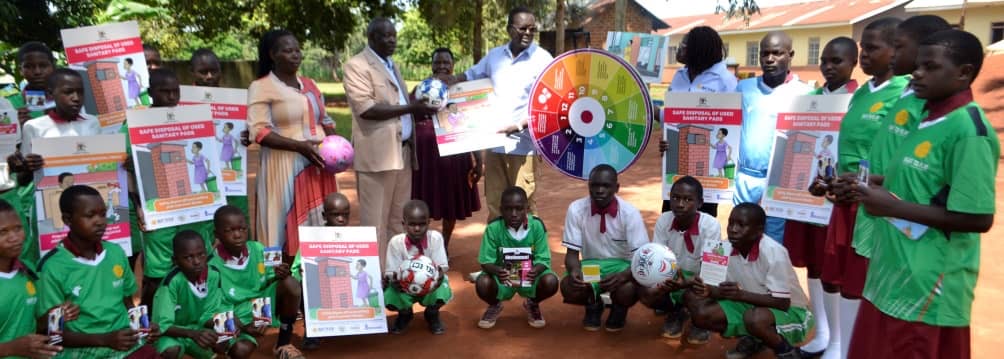Buyende District has praised the Right to Play project for its contribution to improving enrolment, retention, and completion rates among school learners, pledging to adopt the initiative’s model in all schools.
During a handover ceremony at Buyende Township Primary School, the District Education Officer (DEO), Dison Bwire, oversaw the distribution of Sh33 million worth of sports equipment, including 975 jerseys and 260 footballs, to 65 beneficiary primary schools.
“Right to Play’s contribution to education retention and completion is commendable and aligns with the Ministry of Education and Sports’ policy of promoting talent, skills, and socialisation,” DEO Bwire said.
He emphasised that the program’s engagement of learners, parents, and other stakeholders, along with school-based and peer-to-peer mentorship and provision of sports materials, significantly enhances learning outcomes and social development. “This is a model we are committed to replicate and popularize across our schools,” he added.
Bwire highlighted the broader impact of the program, noting that empowering parents and communities through playful approaches not only strengthens interaction with children but also supports their learning and well-being.
He further stressed the importance of advancing menstrual hygiene education, saying it addresses period poverty, promotes gender equality, and contributes to holistic development.
Nelson Mandela Odera, Right to Play Team Leader and Project Officer, said the sports equipment brings the total investment in school activities under the “Learning Through Play” initiative to Sh294 million. The program seeks to protect, educate, and empower learners, making learning enjoyable and attractive.
Odera outlined key in-school activities, including training on menstrual hygiene management, life skills, making reusable sanitary pads, and sexuality education.
“Under the SHARE Project, funded by Global Affairs Canada, we are improving access to sexual and reproductive health information, challenging harmful gender norms, and championing policies that respond to the needs of girls and boys,” he said.
Patricia Nangobi, Sanitation and Hygiene Secretary of the SHARE Club, noted that the program has increased awareness, social acceptance, and reduced menstrual stigma among students. “Right to Play has helped us socialise, develop our talents, and build self-esteem,” she said.
Pius Isabirye, a P.6 Compound Prefect and SHARE Clubs Publicity and Children Advocacy Secretary, expressed gratitude for the program’s role in bridging communication gaps between children, parents, and teachers.
“Through our SHARE Club, boys assist girls during periods, make reusable pads, and openly discuss challenges and plans with teachers and parents,” he disclosed.


